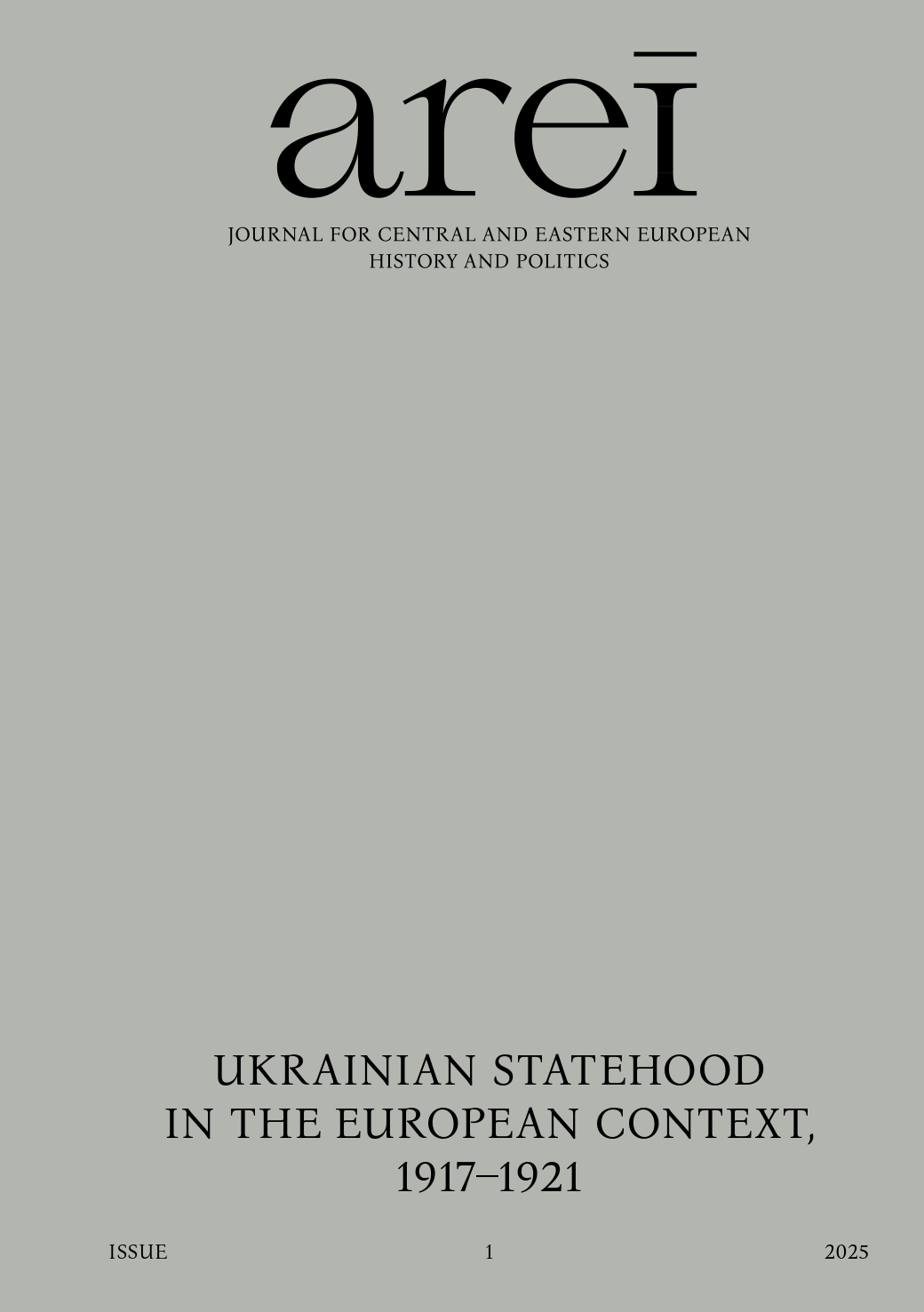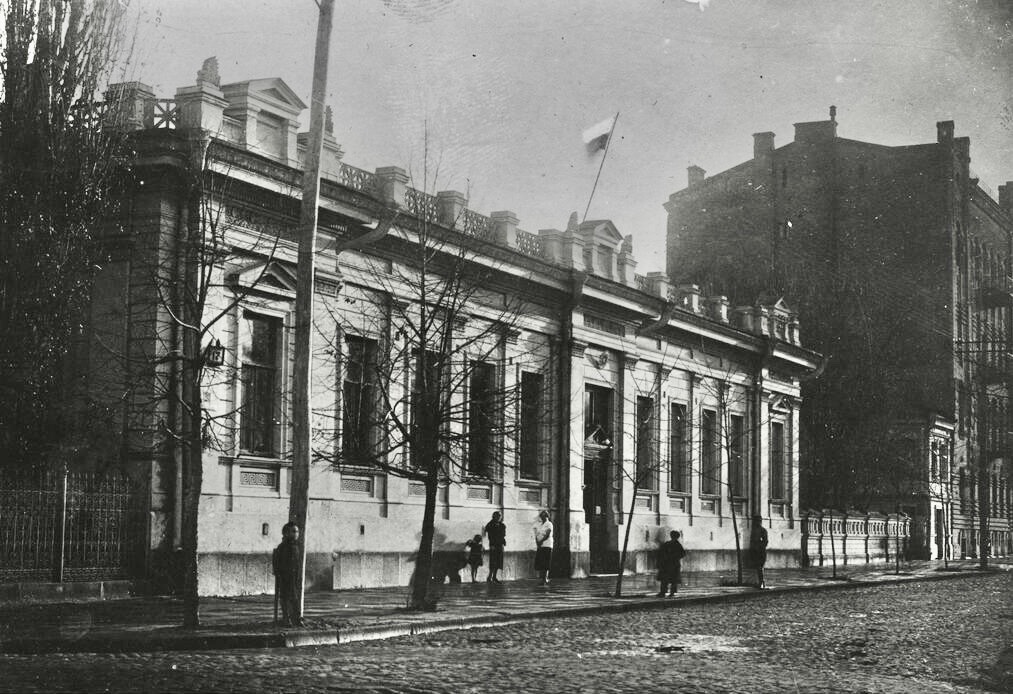August 11 1937, Moscow. Operational Order No. 00485 of the People’s Commissar of Internal Affairs of the USSR, Nikolai Yezhov, regarding initiation of the “Polish Operation”
For the Personal Attention of
Chief of the Transportation Control Department (DTO)[1] of
the Main Directorate of State Security (GUGB NKVD)[2]
Kharkov South Railway
Comrade Leopold
Top Secret
Copy No. 71
Operational Order of
The People’s Commissar of Internal Affairs
Union of SSR
August 11 1937
Moscow
No. 00485
The letter attached to this order regarding the fascist-rebel, spy, sabotage, defeatist, and terrorist activities of Polish intelligence in the USSR, as well as investigative materials for the Polish Military Organization (“POW”)[3] case, paint a picture of many years of relatively unpunished sabotage and spy work of Polish intelligence on the territory of the Union.
As these materials demonstrate, the subversive activities of Polish intelligence have been and still are carried out in such an open manner that the impunity of this activity can only be explained by the poor work of the GUGB organs and the carelessness of the Chekists.[4]
Even now, work on the elimination of the Polish sabotage-spy groups and “POW” on the ground has not been initiated fully. The pace and scale of the investigation are very minor. The main Polish intelligence personnel have managed to evade operational accounting (out of the total number of defectors from Poland, amounting to about 15,000 people, only 9,000 people are accounted for across the Union). In Western Siberia, out of approximately 5,000 defectors on its territory, no more than 1,000 are accounted for. The same situation applies to the accounting of political emigrants from Poland. As for intelligence work, it is almost completely absent. Moreover, the existing agent network typically consists of double agents planted by Polish intelligence itself.
The insufficiently resolute elimination of Polish intelligence personnel is even more dangerous now that the Moscow “POW” centre has been crushed and many of its most active members have been arrested. Polish intelligence, anticipating the inevitability of its further failures, attempts to or in some cases has already activated its sabotage network within the national economy of the USSR, primarily its defence objects.
In accordance with these developments, the main task of GUGB at this moment is the destruction of the anti-Soviet work of Polish intelligence and the complete elimination of the hitherto untouched, extensive sabotage-rebel grassroots of POW, as well as the main human personnel of Polish intelligence in the USSR.
I hereby order:
1. Beginning 20 August 1937, initiate a comprehensive operation aimed at complete elimination of local “POW” organizations, primarily their sabotage-spy and insurgent personnel in industry, transportation, state farms, and collective farms. The entire operation must be completed within a 3-month period, i.e., by 20 November 1937.
2. The following are subject to arrest:
a) the most active members of “POW” identified during the investigation and not yet apprehended, as per the attached list;
b) all remaining Polish army prisoners of war in the USSR;[5]
c) defectors from Poland, regardless of the timing of their entry into the USSR;
d) political emigrants and persons exchanged under the exchange program of political prisoners from Poland;[6]
e) former members of PPS[7] and other Polish anti-Soviet political parties;
f) the most active core of local anti-Soviet nationalist elements in Polish regions.
3. The operation is to be conducted in two stages:
a) firstly, the abovementioned personnel of the NKVD[8] agencies, the Red Army, military factories, defense workshops of all other factories, the railway, water, and air transport sectors, the electric power sector of all industrial enterprises, gas and oil refineries, should be arrested;
b) secondly, all other members working within the industrial enterprises of non-defensive significance, state farms, collective farms, and institutions should be arrested.
4. Simultaneously with the expansion of the arrests, investigative work should be initiated. The main focus of the investigation should be complete exposure of the organizers and leaders of the sabotage groups, with the aim of comprehensive identification of the sabotage network. All those implicated by the testimony of arrested spies, saboteurs, and subversive elements should be arrested immediately. A special group of operational workers should be formed to conduct the investigation.
5. Once their guilt has been established during the investigation, all arrested are to be classified into two categories:
a) first category: subject to execution. This group includes all spy, sabotage, destructive, and insurgent personnel of Polish intelligence;
b) second category: subject to imprisonment in jails and camps for a period of five to ten years. This group includes less-active personnel.
6. Those who during investigation have been classified as belonging to either the first or second category should be included in the lists that must be compiled every ten days. These lists should contain brief descriptions of the investigative and intelligence materials determining the degree of guilt of the arrested and should be sent for final approval to the NKVD of the USSR.
Assignment to the first or second category based on the review of the investigative and intelligence materials is carried out by the People’s Commissar of Internal Affairs (NKVD) of the republic, the Head of Directorate of the People’s Commissariat of Internal Affairs (UNKVD) of a particular region or territory, jointly with the corresponding prosecutor of the republic, region, or territory.
The lists are then sent to NKVD USSR and are signed by the People’s Commissar of Internal Affairs of the republic, the Head of the UNKVD, and the Prosecutor of the respective republic, region, or territory. Once the lists have been approved by the NKVD of the USSR and the Prosecutor of the Soviet Union, the sentences should be enforced immediately, i.e., those sentenced in the first category are to be shot, and those in the second category are to be sent to prisons and camps by the orders of the NKVD of the USSR.
7. I order to cease the release from prisons and camps all those who have been convicted of Polish espionage and are nearing completion of their sentences. Submit each individual case material for consideration at the Special Meeting of the NKVD of the USSR.
8. Use all practices accumulated during the destruction of “POW” and other Polish intelligence personnel to skillfully and thoughtfully acquire new agents through the Polish line.
During the selection process of resident agents, pay particular attention to measures that ensure the NKVD against infiltration by double-agents of Polish intelligence.
Send lists of agents designated for recruitment, with a comprehensive profile of each one, to the Head of GUGB NKVD, comrade FRINOVSKII[9], for approval.
9. Report on the progress of the operation by telegram every five days, i.e., on the 1st, 5th, 10th, 15th, 20th, 25th, and 30th of each month.
Plenipotentiary People’s Commissar of Internal Affairs of the USSR
General Commissar of State Security YEZHOV[10]
Acknowledged:
OPERATIONAL SECRETARY OF THE GUGB NKVD of the USSR
Bridage Commander (—) ULMER[11]
State Archives of the Security Service of Ukraine (SBU), f. 9, d. 23, ll. 20–24. Certified copy, typewritten. The document is published in Nikita Pietrow, ‘Polska operacja NKWD’, Karta, (1993), 27–29; Jurij Šapoval, Volodymyr Prystajko, and Vadym Zolotarʹov,
ČK–HPU–NKVD v Ukrajini: Osoby, fakty, dokumenty (Kyjiv: Abrys, 1997), pp. 347–350. An incomplete version of the document is quoted in Waldemar Moszkowski, ‘Między śmiercią a niewolą. Polacy w czasach wielkiego terroru komunistycznego drugiej połowy lat trzydziestych’, Nasz Dziennik, 19 and 23 October 2002.
[1] The Department of Transport Support: a structural unit within the NKVD of the USSR, responsible for logistics within the structure.
[2] The Main Directorate of State Security of the People’s Commissariat of Internal Affairs of the USSR (Russian GUGB NKVD SSSR): institutional structure of state security of the USSR in 1934–1941.
[3] Polish Military Organization (Polska Organizacja Wojskowa): a secret military organization founded in 1914 by Józef Piłsudski.
[4] A member of The All-Russian Extraordinary Commission for Combating Counter-Revolution and Sabotage under the Council of People’s Commissars of the RSFSR (VChK under the Council of People’s Commissars of the RSFSR): a special security agency of the Soviet state, commonly known as Cheka, from which the term ‘Chekist’ comes.
[5] Here are mentioned prisoners who were not released and did not return home after the Polish-Soviet war (1919–1921).
[6] This refers to representatives of the Polish communist movement.
[7] Polish Socialist Party: a Polish left-wing political party, founded in 1892, one of the most important political forces in Poland until 1948.
[8] NKVD of the USSR: People’s Commissariat of Internal Affairs of the USSR of the Council of People’s Commissars, the Government of the USSR, existing until 1946.
[9] Frinovskij Mikhail (1898–1940): Deputy People’s Commissar of Internal Affairs of the USSR in 1936–1938; head of GUGB (Main Directorate of State Security) NKVD of the USSR 1937–1938; head of the 1st Department of NKVD of the USSR in 1938; one of the organizers and an active participant in the repressions. He was arrested in.1939 and executed in 1940.
[10] Nikolai Ežov (1895–1940): People’s Commissar of State Security in 1936–1938. In 1939, he was arrested and confessed to an alleged plot to kill Stalin and the entire Bolshevik leadership, as well as to espionage activities. After a secret trial, Yezhov was executed in 1940.
[11] Voldemar Ulmer (1896–1945): Operational secretary in the GUGB NKVD of the USSR 1937–1938, head of the secretariat of the 1st Deputy People’s Commissar of Internal Affairs of the USSR in 1938. He was arrested in 1939. In 1940, sentenced to 15 years in an ITL (corrective labor camp), he died in jail in 1940.






